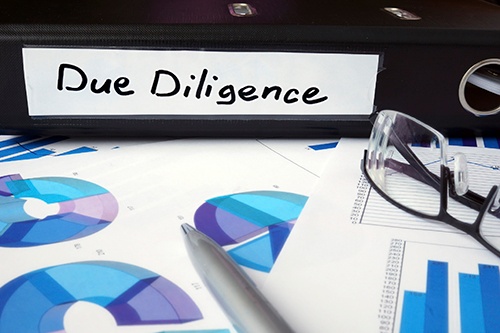
Companies’ supply chains are increasingly affected by new laws in the U.S. and Europe that address not only materials, but also due diligence policies and practices. Many also require a manufacturer to impose requirements on its suppliers. They impact your relationship with your supplier network, and require both supplier engagement and verification.
The good news is that these new laws have commonalities. Companies that identify these commonalities early can create better systems to adapt to the new range of obligations.
Evolving Regulatory Landscape
In the European Union, a conflict minerals law is pending passage, modeled after the United States law (Dodd Frank Wall Street Reform and Consumer Protection Act of 2010, Section 1502), which requires public U.S. manufacturers whose products contain tin, tantalum, tungsten, or gold, to report on whether the origin of those minerals is a conflict mine in one of ten designated countries in the Congo region of Africa. The EU law {2014/0059(COD)} would similarly require companies to engage their supply chains to ensure that the origin of these minerals in their products is not from a conflict area. Significantly, the U.S. law requires companies to engage in “due diligence” to evaluate certain claims made by suppliers, which includes an evaluation of whether there is any evidence that contradicts the claims the supplier has made.
The European Union has also imposed new restrictions on chemical biocides common in the automotive sector. The Biocidal Products Regulation (528/2012) requires manufacturers and importers to obtain authorization before placing a product containing biocides on the market, and requires companies to evaluate supplier credibility as part of the compliance process — a new type of prerequisite which is reminiscent of the conflict minerals due diligence requirements.
In a third major regulatory update, beginning in 2017, companies in the EU will be required to adhere to the non-financial disclosure reporting rule (Directive 2014/95/EU), which will require businesses to report on environmental, social, anti-corruption and bribery, diversity, and employee-related matters, including human rights. Listed companies will be required to disclose information including: due diligence processes, outcomes of their stated policies, the principal risks related to these matters throughout the company's operations including, where relevant, its business relationships, products or services which are likely to cause adverse impacts in these areas, and how the company manages these risks.
In 2015, the United Kingdom also established a law directly affecting companies around the globe that conduct any part of their business in the UK and have annual global turnover of at least £36 million. Modeled after the California Transparency in Supply Chains Act 2012, the UK requires a "slavery and human trafficking statement" that will have companies reveal the steps they have taken during the financial year to ensure that slavery and human trafficking is not taking place in any part of their business or supply chain. Companies are expected to implement policies and enforcement throughout their supplier network.
New Implications for Manufacturers and Suppliers
These laws have serious implications for manufacturers’ and suppliers' operations, due diligence, and credibility. Suppliers and sub-suppliers will have to adjust their operations, policies, and practices in order to demonstrate to their downstream partners that they have met the standards in place in these regulations.
This presents an opportunity for savvy manufacturers to develop one supplier compliance program that meets these regulatory requirements. These regulations require companies to impose requirements on their supplier networks, and to collect new types of data from them. The development of a new system to collect and synthesize information from suppliers about materials and policies should also include supplier engagement records, verification, and data management. The idea of “data” has now expanded beyond a bill of materials to include information about suppliers’ practices and policies.
Companies stand to gain in multiple ways by improving their broader supply chain compliance programs to incorporate these new requirements. Proactive, cross-functional teams inside the management structure will allow an integrated strategy to succeed. Education, collaboration, and corrective-action programs for your suppliers should all reap rewards. Building strong relationships with suppliers and setting clear expectations can improve the response and quality of data received. Noncompliance may mean costly regulatory backlash, or answering to distressed consumers or interest groups in the forum of public opinion. Instead, investing in establishing a system to leverage the commonalities between these obligations not only facilitates compliance, but also helps mitigate risks from new regulatory obligations down the line.
Kirsten Wallerstedt is a senior regulatory analyst at 3E Company (www.3ecompany.com).


